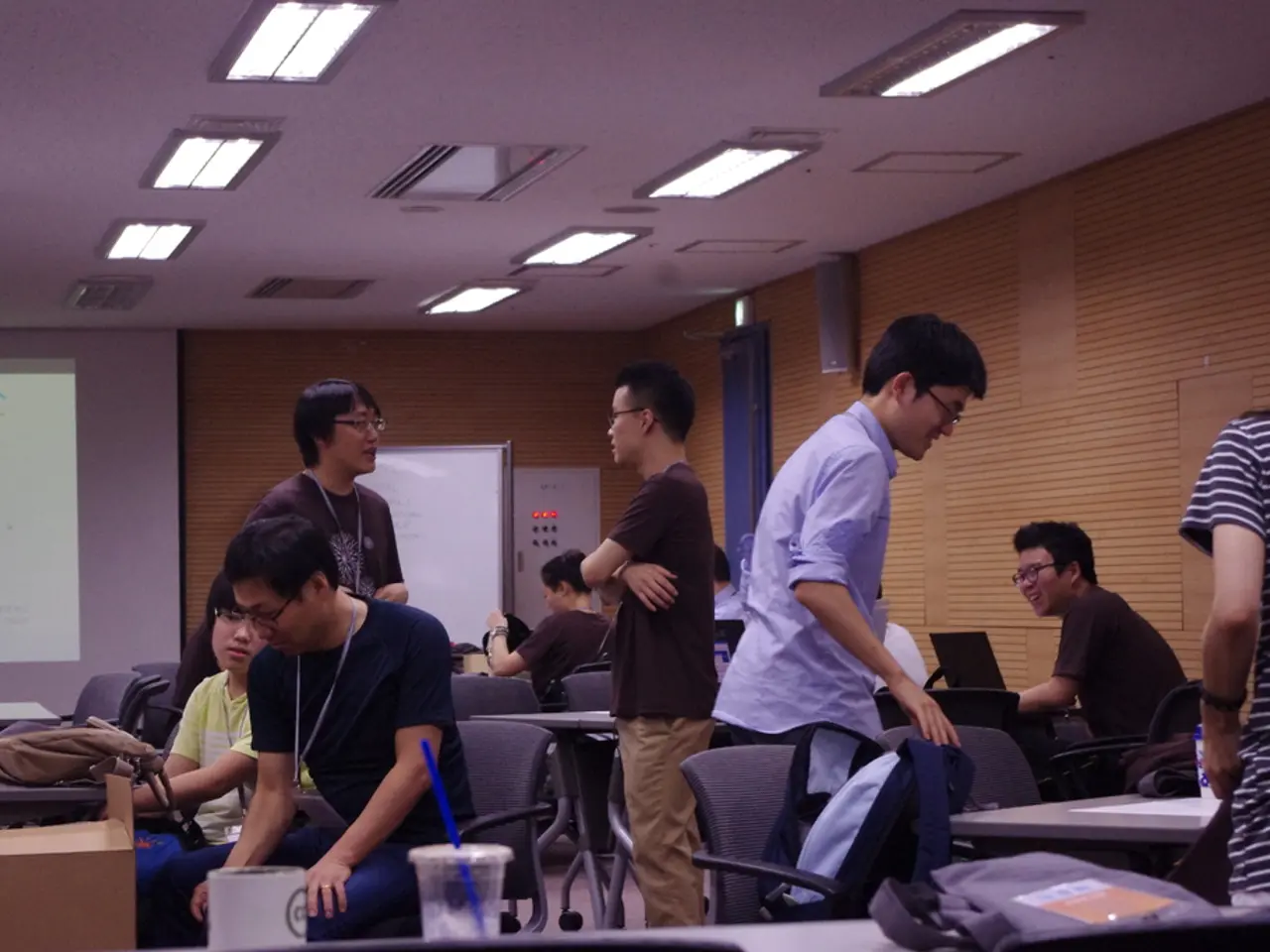Classroom Experiences Shaping Students for Life's Challenges
In an innovative approach to education, our school is embracing real-world learning, a method that connects curriculum to situations students may encounter in life, society, and work. This approach enables students to gain knowledge through hands-on practice, reflection, and real-time problem solving.
The impact of real-world learning on academic performance and skill development is significant. Improved engagement is a key benefit, as students apply theoretical concepts to practical problems, making learning more meaningful and relevant. This increased motivation and participation leads to better retention of information, as students see the utility of what they are learning.
Real-world learning also enhances problem-solving skills, as students tackle open-ended problems, developing critical thinking abilities that are crucial for navigating complex real-world situations. Collaboration and communication skills are fostered through group projects and community-based initiatives, while resilience and adaptability are nurtured as students learn to adapt to new situations and overcome challenges.
Creativity and innovation are also cultivated, as students develop creative solutions to real-world challenges. Leadership and self-confidence are enhanced through experiential learning, as students apply classroom knowledge in practical settings.
The school's commitment to real-world learning extends beyond the classroom. Community service projects allow students to identify local challenges and design and implement practical solutions. Inquiry and Research enable students to drive their own learning through open-ended questions and discovery, exploring local environments and conducting personal research projects.
Project-based learning encourages students to lead meaningful projects, such as creating a business plan or multimedia presentations on global issues. Connecting subjects to current events helps students examine how their subjects relate to what's happening in the world around them, such as exploring climate issues and their impact on policy and ecosystems.
Field experiences, guest speakers, museum visits, nature walks, and industry visits further enrich the learning experience, providing students with diverse perspectives and practical skills that match the demands of modern life. International schools often partner with professionals, organizations, and local leaders to give students direct exposure to community work for service learning projects or presentations.
In conclusion, real-world learning provides students with a comprehensive education that prepares them for academic and professional success while fostering essential life skills. By weaving inquiry, technology, and real-life application into every level of learning, the school aims to prepare children to thrive in a complex and changing world.
- The school implements service learning, which involves students identifying local challenges and designing solutions, as part of their real-world learning approach.
- In this education system, reflection, hands-on practice, and real-time problem solving are vital components in students' learning of the curriculum.
- By linking the school's curriculum to technology, students are encouraged to foster innovation and creativity in their learning and problem-solving.
- Collaborative skills are developed through group projects, community-based initiatives, and service learning, while resilience and adaptability are honed through realistic problem-solving opportunities.
- Through project-based learning, students are given the chance to lead meaningful projects that correlate education-and-self-development with lifelong learning.
- Beyond the classroom, field experiences, guest speakers, and various visits help enrich students' understanding of various perspectives and provide practical skills for modern life, including international exposure to community work and industry insights.




